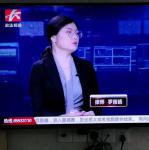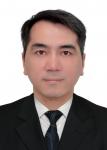发布文号:
进入新世纪以来,国际形势发生深刻和复杂的变化。和平与发展仍是时代主题,但不确定、不稳定因素有所增加。实现人类社会的持久和平与普遍发展既有难得的机遇,也面临严峻的挑战。
在全球化深入发展、各国依存不断密切的情况下,全球性威胁和挑战呈现多元化的特点,更加相互关联。对这些威胁都应予以高度重视,不能厚此薄彼。各国应共同努力,通过沟通加深理解,通过对话增强信任,通过交流推动合作,以集体行动应对威胁和挑战,特别是努力消除其产生的根源。
联合国在国际事务中的作用不可或缺。作为最具普遍性、代表性和权威性的政府间国际组织,联合国是实践多边主义的最佳场所,是集体应对各种威胁和挑战的有效平台,应该继续成为维护和平的使者,推动发展的先驱。通过改革加强联合国作用,符合全人类的共同利益。
中国欢迎“威胁、挑战与变革”高级别名人小组报告、联合国千年发展项目报告以及秘书长综合报告。这些报告就振兴和改革联合国提出了不少有益、可行的思路和建议。中国愿与各方一道,推动联合国改革取得积极成果,推动将于今年9月举行的首脑会议取得成功。
中国认为,联合国改革应遵循以下原则:
—— 改革应有利于推动多边主义,提高联合国的权威和效率,以及应对新威胁和挑战的能力。
—— 改革应维护《联合国宪章》的宗旨和原则,特别是主权平等、不干涉内政、和平解决争端、加强国际合作等。
—— 改革是全方位、多领域的,在安全和发展两方面均应有所建树,特别是扭转联合国工作“重安全、轻发展”的趋势,加大在发展领域的投入,推动落实千年发展目标。
—— 改革应最大限度地满足所有会员国、尤其是广大发展中国家的要求和关切。应发扬民主,充分协商,努力寻求最广泛一致。
—— 改革应先易后难、循序渐进,有助于维护和增进联合国会员国的团结。对达成一致的建议,可尽快作出决定,付诸实施;对尚存分歧的重大问题,要采取谨慎态度,继续磋商,争取广泛一致,不人为设定时限或强行推动作出决定。
一、发展问题
发展是各国人民的共同诉求,是集体安全机制和人类文明进步的基础。贫困、疾病、环境恶化同样对国际社会构成严重挑战。要重视发展中国家的需要,实现全球协调、平衡和普遍的发展。
(一)贫困
—— 解决贫困问题的当务之急是推动落实联合国千年发展目标。这应成为联合国改革和9月首脑会议的重点。
—— 应引导全球化的平衡发展,加强发展中国家在国际经济事务中的平等参与权与决策权。
—— 中国支持发展中国家根据本国国情,尽快制定并启动实现千年发展目标的全面国家战略。国际社会应为此提供必要的帮助。
—— 国际发展援助应充分考虑发展中国家国情,增加受援国自主权与参与权,以提高援助效果。
—— 中国支持秘书长关于官方发展援助达到国民生产总值0.7%时间表的建议,并认为应制定具体落实方案,建立相应监督和评估机制。
—— 在发挥官方发展援助主导作用的同时,支持国际社会探讨创新性筹资方式作为官方发展援助的有益补充。
—— 推动改革和完善国际金融体制,使其遵循平等互利原则,监控、引导国际资本合理流动,防范金融危机。
—— 应建立、健全开放、公平的多边贸易体制,充分考虑发展中成员和新加入成员的利益,尽快按多哈宣言的授权取消对农产品的补贴、实质性削减关税和非关税贸易壁垒。
—— 中方支持推动第六届世界贸易组织香港部长级会议按照2004年7月框架协议和多哈部长宣言的授权,就谈判模式达成协议,以便尽早完成世界贸易组织多哈回合谈判,使之真正成为“发展的一轮”。
—— 发达国家应切实减免发展中国家的债务,使更多的资金用于发展。
—— 应鼓励加强公共和私营部门伙伴关系,动员多种资源,促进经济增长,消除贫困。
—— 中国支持加强南南合作,分享经验,拓展合作,互利互助,增强发展的内在能力。
(二)疾病
—— 各国应继续抓紧落实关于“加强全球公共卫生能力建设”的联大第58/3和59/27号决议,将发展公共卫生事业纳入各自发展计划和活动当中,建立科学规范的公共卫生体系,健全传染病监测、预防、控制、治疗和信息通报网络。发达国家应向发展中国家提供帮助。
—— 联合国系统各有关机构应考虑将公共卫生纳入其活动、方案和规划中,进一步支持各国加强公共卫生能力建设,促进国际合作。
—— 应加强世界卫生组织和其它相关国际组织在疾病防治方面的指导和协调作用。中国支持向世界卫生组织全球疫情警报和反应网络提供更多资源。
—— 中国支持尽快就修订《国际卫生条例》达成协议。
—— 应进一步加强艾滋病防治工作。当务之急是在现有合作框架内,加快落实《艾滋病特别联大宣言》有关承诺。发达国家应履行承诺,为发展中国家艾滋病防治提供更多资金和技术支持。
—— 如何界定传染病是否对国际和平与安全构成威胁,目前没有公认标准。安理会作为主要处理对国际和平与安全构成重大威胁问题的机构,不宜重复其它机构的工作。
(三)环境
—— 中国主张树立科学发展观,将可持续发展和环境保护纳入国家发展战略,统筹协调经济、社会发展与环境保护三者之间的关系。
—— 各国应按照“共同但有区别责任”原则开展可持续发展国际合作,重点是帮助发展中国家有效应对环境挑战,特别是帮助其解决水资源短缺、城市空气污染、生态恶化、荒漠化等紧迫问题。发达国家应落实承诺,向发展中国家提供相关技术转让和资金支持,帮助发展中国家进行能力建设。
—— 实现可持续发展是应对全球气候变化的最有效途径。国际社会在制定能源政策和气候变化政策以及其他相关政策时,应切实考虑到各国的现实需求和挑战。
—— 《联合国气候变化框架公约》为应对气候变化国际合作提供了有效框架。京都议定书为有关缔约国规定的2008-2012年的各项义务,包括减排温室气体,向发展中国家提供技术转让、资金支持和能力建设等方面的援助等应得到切实履行。
—— 发达国家2012年后应继续根据公约“共同但有区别的责任”原则率先采取减排措施。同时,国际社会可探讨更为务实和灵活的国际机制,促进国际技术合作,推动先进能源技术在发展中国家的适用,促进可持续发展,提高国际社会应对气候变化的能力。
—— 中国支持加强现有环境机构间的协调与合作,整合资源,提高效率,促进政策的协调。中国愿研究旨在实现上述目标的相关建议。
(四)自然灾害
—— 中国支持尽快设立所有自然灾害的全球预警系统,加强国家、区域和国际各层面在紧急人道主义援助和减少灾害风险方面的协调与合作。
二、安全问题
我们赞成秘书长关于采取集体行动应对各种安全威胁和挑战的主张,这同中方倡导建立“互信、互利、平等、协作”新安全观的目标是一致的。建立一个有效力、效率和公平的集体安全机制,关键是坚持多边主义,推动实现国际关系民主化和法治化,坚持《联合国宪章》的宗旨和原则,加强联合国的权威与能力,维护安理会作为集体安全体系核心的地位。
(一)战争与冲突
—— 国家间冲突应按照《联合国宪章》和国际法,通过平等协商、和平谈判加以解决。
—— 国内冲突情况复杂,是否危及国际和平与安全,应具体问题具体分析。解决国内冲突应主要靠当事国人民努力。外部支持应以《联合国宪章》为基础,以国际法为准绳,采取谨慎和负责态度,综合应用政治、外交等手段,鼓励和帮助冲突方通过协商和谈判解决问题。
(二)反恐
—— 中国主张并支持打击一切形式的恐怖主义。国际反恐努力要充分发挥联合国的主导与协调作用,注意标本兼治,应避免政治化,不能采取双重标准。
—— 中国支持尽快制定全球综合反恐战略,赞同以秘书长提出的五个支柱为基础加以发展。
—— 中国支持进一步完善现有反恐条约体系和法律框架。各国应考虑尽快签署和批准现有的国际反恐公约,并本着合作和建设性态度,尽快就《关于国际恐怖主义的全面公约》草案达成一致。
—— 中国希望在恐怖主义定义问题上形成共识。有关定义可适当参照现有国际公约及安理会决议的相关规定。
—— 会员国及民间组织在参与反恐合作过程中必须遵守《联合国宪章》和相关国际法准则。
—— 对反恐过程中的侵犯人权行为,应充分利用人权会现有机制、公约机构和国际人道主义法监督机制加以解决,目前没有必要设立新机制。
—— 中国支持加强安理会反恐委员会职能,扩大执行局权限,特别是帮助发展中国家加强反恐能力建设,并为此设立能力建设信托基金。
—— 中国认为,有必要任命一名联合国反恐事务协调员。
(三)裁军与防扩散
—— 中国一贯主张全面禁止和彻底销毁大规模杀伤性武器,反对此类武器及其运载工具任何形式的扩散。中国一直积极推进国际核裁军进程。
—— 核武器国家应缔结互不首先使用核武器的条约。核武器国家还应无条件地承诺不对无核武器国家或无核武器区使用或威胁使用核武器,并就此达成有约束力的国际法律文书。
——国际社会应采取切实有效步骤,维护和加强《不扩散核武器条约》条约的普遍性和权威性。条约缔约国应本着建设性态度,平衡对待条约三大目标。
—— 中国支持《全面禁止核试验条约》,希望条约尽早生效。中国将继续暂停核武器试验,并争取早日批准条约。
—— 中国支持在日内瓦裁军谈判会议达成一项平衡的工作计划基础上,尽快启动“禁止为核武器或其他核爆炸装置生产裂变材料条约”的谈判。
—— 中国支持国际原子能机构(IAEA)根据《规约》宗旨,在防止核武器扩散及促进各国和平利用核能方面发挥重要作用。当前形势下,有必要通过国际合作与协商,探讨如何进一步增强核不扩散机制,包括采取适当措施进一步加强国际原子能机构保障监督有效性等重要问题。强调IAEA附加议定书的重要性,希其普遍性得到加强。
—— 中国支持并积极参与旨在加强《生物和毒素武器公约》有效性的多边努力,对就《公约》核查议定书立即恢复谈判持积极态度。中国支持公约缔约国谈判制定一项新的生物安全议定书,对危险生物制剂分类,并为此类制剂出口订立有约束力的国际标准。
—— 中国支持加强《生物和毒素武器公约》与《禁止化学武器公约》的普遍性。
—— 《生物和毒素武器公约》的协商、合作与调查机制是处理指称使用生物武器的主要手段,缔约国应予遵行。秘书长机制有其特定的历史背景和适用范围。如多数国家同意,可通过多边谈判全面重新审议。
—— 鼓励所有缔约国按照《生物和毒素武器公约》相关审议大会的要求,提交建立信任措施的有关资料。
—— 拥有化学武器的国家应加速销毁全部现有化武储存、老化武和遗弃在别国领土上的化武。禁化武组织核查机制运转大体正常,缔约国还可通过澄清、协商、合作等机制处理、解决违约关切。如发生严重违约情况,缔约国大会或执理会可提请联合国大会和安理会注意该问题。
—— 中国反对大规模杀伤性武器及其运载工具的扩散,支持加强现有国际防扩散机制,主张在国际法框架内通过政治和外交手段解决扩散问题。任何防扩散措施都应有助于增进国际和地区的和平、安全和稳定。与许多国家一样,我们不赞成“防扩散安全倡议”在国际法范畴外采取拦截措施。
—— 防止外空武器化和外空军备竞赛有助于维护全球战略稳定,促进军控与裁军进程。国际社会应高度重视,采取积极有效的措施防患于未然。日内瓦裁谈会应尽快设立特设委员会,谈判缔结相关国际法律文书,或以此为目标开展工作,弥补现有外空法律机制的漏洞,切实防止外空武器化和外空军备竞赛。
——《特定常规武器公约》在解决战争引起的人道主义关切方面发挥了重要作用。中国一直积极参与和公约相关的各项工作。中国希望《战争遗留爆炸物议定书》尽早生效并得到切实履行。中国将继续支持并参与《特定常规武器公约》政府专家组工作,希望有关工作取得进展。
—— 中国支持国际社会打击小武器非法贸易的努力,支持谈判达成有关“识别和追查非法小武器”的国际文书。小武器非法贸易涉及裁军、安全、发展和人道主义等多方面因素,应寻求全面妥善的解决办法。各国应承担首要责任,加强相互协调与合作,联合国应继续发挥主导作用。
(四)有组织犯罪
—— 中国支持加强国际和地区合作,打击跨国有组织犯罪。发达国家应在提供资源方面承担更多义务。
——中国希望打击跨国有组织犯罪和腐败等方面的国际公约能得到有效实施。
—— 联合国毒品和犯罪问题办公室应努力协助各国履行公约。
—— 在确保联合国现有国际公约有效实施的前提下,中国对在联合国框架谈判制定新的必要的国际公约不持异议。中国对谈判制定一项关于洗钱问题的全面国际公约持开放态度。
(五)预防与调停
—— 中国支持联合国建立“预防文化”,加大对预防冲突和调停的投入,特别是完善预警、实地调查团等机制和措施。
—— 会员国既要充分发挥安理会在此方面的主导作用,也要支持秘书长根据授权履行斡旋和调解职能。
(六)制裁
—— 中国一贯主张谨慎使用制裁,必须以用尽和平解决的所有手段为前提。一旦安理会决定实施制裁,各国均有义务严格执行。
—— 中国支持改进联合国制裁机制,设立严格标准,加强针对性,设定明确时限,并尽可能减少制裁引发人道主义危机和对第三国的影响。各制裁委员会应定期评估制裁造成的人道主义影响。
—— 国际社会应帮助发展中国家加强执行制裁的能力。
(七)使用武力
—— 和平解决国际争端与在国际关系中不使用武力是《宪章》的重要原则和国际法基本准则。中国一贯主张通过和平方式解决国际争端,反对在国际关系中使用武力或以武力相威胁。
—— 我们赞成既不修改《宪章》第51条,也不重新解释第51条。《宪章》对使用武力已有明确规定,除因遭受武力攻击而进行自卫外,使用武力必须得到安理会授权。对是否构成“紧迫威胁”,应由安理会根据《宪章》第七章并视具体情况判定,慎重处理。
—— 导致发生危机的原因和各类危机的情况不尽相同。就使用武力形成一个“放之四海皆准”的规则和标准不现实,也容易引起较大争议。是否使用武力,应由安理会视冲突实际情况逐案处理。
—— 安理会是联合国唯一可决定使用武力的机构。区域办法或区域组织采取强制性行动,必须事先得到安理会授权。
(八)维和
—— 联合国维和行动应遵循《联合国宪章》以及实践证明行之有效的各项基本原则,包括中立、当事方同意以及非自卫不得使用武力等。
—— 中方支持加强联合国维和行动能力,欢迎秘书长关于建立战略储备、成立维和民警待命安排的建议。希望秘书处根据联大维和特别委员会的要求,对建议的诸多方面予以细化和澄清。建立新机制需要进行谨慎、周密的研究,确保其可行性、有效性,整合资源,量力而行,并充分发挥现有机制的潜力。
—— 联合国维和资源有限,应合理有效使用。联合国可根据具体情况,对非洲区域组织开展的维和行动提供必要支持。
—— 中国支持加强联合国与区域组织的合作,以加强协调,发挥各自优势。区域组织开展的维和行动,须符合《联合国宪章》的宗旨和原则。
(九)建设和平
-中国支持设立建设和平委员会。委员会的职责应主要是协助制订从冲突过渡到冲突后重建的计划,协调国际社会努力。中国赞同秘书长关于该委员会不具有预警和监测职能、并主要发挥咨询作用的看法。
—— 委员会主要向安理会负责,有助于保证其效率和效力。中国也支持经社理事会充分参与委员会的工作。
-秘书处设立建设和平支助厅应本着精干和有效原则。
三、法治、人权与民主
(一)“保护的责任”
—— 各国负有保护本国公民的首要责任。一国内乱往往起因复杂,对判定一国政府是否有能力和意愿保护其国民应慎重,不应动辄加以干预。
——在出现大规模人道危机时,缓和和制止危机是国际社会的正当关切。有关行动须严格遵守《宪章》的有关规定,尊重有关当事国及其所在地区组织的意见,在联合国框架下由安理会根据具体情况判断和处置,尽可能使用和平方式。在涉及强制性行动时,更应慎重行事,逐案处理。
(二)国际刑事法院
—— 中国支持建立一个独立、公正、有效和具有普遍性的国际刑事法院,以惩治最严重的国际罪行。
—— 由于《国际刑事法院罗马规约》尚存的一些不足可能影响法院公正、有效地行使职能,因此中国尚未参加,但仍希望法院能以其实际工作赢得非缔约国的信心,赢得国际社会普遍接受。
—— 对是否将有关局势提交国际刑事法院,安理会应谨慎行事。
(三)国际法院
—— 中国支持加强国际法院作用,改进法院的工作方法,提高法院的效率。各国自由选择和平解决争端方式的权利应得到尊重。
(四)人权
—— 中国赞同并支持改革联合国人权机构。改革的关键是扭转将人权问题政治化的现状,不搞双重标准,减少和避免对抗,促进合作,将更多资源用于人权技术合作项目,加强各国人权能力建设。
—— 应同等重视经济、社会、文化权利和公民、政治权利两类人权,纠正只偏重一类人权的现象。
—— 联合国人权会在国际人权领域发挥了重要作用,人权会的作用和贡献不能轻易否定。
—— 联合国人权机构的组成必须遵循公平地域分配原则,确保具有广泛的代表性。由一个小规模的“人权理事会”取代人权会,恐怕解决不了当前人权领域严重的“信誉赤字”,如何改进联合国人权机构的工作,各方还需进行认真探讨。
—— 中国同意联合国“机构间国家工作队”支持各国人权建设的全球方案。“国家工作队”应尊重会员国的主权和法律,并充分考虑到会员国在人权方面的实际需求,以加强会员国本身的人权能力建设为工作目标。“国家工作队”的工作情况每年应形成报告,供会员国审议。
—— 中国支持人权高专根据其授权在联合国系统发挥积极作用。安理会和拟议中的建设和平委员会可根据需要邀请人权高专参加有关审议。
—— 人权高专办应获得相应资源,以加强履行职责的能力,同时应提高经费利用效率。高专办的组成也应更好地体现公平地域分配原则,以便争取各国更广泛的支持。
—— 中国支持改革现行的人权公约报告和审议制度,以避免各条约机构工作的重复,切实减轻缔约国负担。应制订公约机构的工作准则,加强公约机构与缔约国的交流与对话。
(五)拟议中的“民主基金”
—— 秘书长应首先对拟议中的民主基金来源、使用规则和评估方法进行说明,以便各方就此进一步进行讨论。
—— 中国不赞成将各国分为“民主”和“非民主”国家。
四、加强联合国
(一)联合国大会
—— 大会是联合国民主决策的重要机构。中国支持通过改革,提高大会的工作效率,并加强其决策能力。
—— 中国赞成就振兴大会通过一揽子方案,对各方提出的具体建议持开放态度。
—— 中国支持适当精减大会议程,优化议事日程,每年根据各方,特别是发展中国家关心的问题,讨论一些重大和实质性问题。那些没有必要的议题可逐年、平衡地删除。
—— 中国重视民间社会在国际事务中发挥的建设性作用,愿与各方就建立大会与民间社会的互动机制问题继续展开深入讨论。民间社会参与联合国活动不应影响联合国的政府间国际组织性质,不应影响联合国的工作秩序和效率。
(二)经社理事会
—— 中国欢迎和支持联合国经社领域改革,认为改革应遵循联大有关决议确定的方向、原则、目标与重点,应以政府为主导。
—— 经社领域的工作应以执行和落实千年发展目标和其它联合国主要会议成果为目标、以资金援助、技术转让、能力建设、市场开放、消除贫困等为重点,促进国际经济、发展合作政策的连续性和协调性,全面、综合与平衡地推进联合国经济、发展议程。
—— 中国赞同经社理事会作为高级别发展论坛,审查国际发展合作趋势,发挥协调作用。
—— 中国支持经社理事会在规范制定和战略决策方面发挥领导作用,制定一项全球发展议程。
—— 中国支持经社理事会举行年度部长级会议,评估实现有关商定的发展目标,特别是千年发展目标的进展情况以及发展中国家关心的其它发展问题。
—— 中国支持加强经社理事会同布雷顿森林体系、世界贸易组织和和联合国相关发展机构间的协调。
—— 中国支持经社理事会在评估饥荒、流行病和严重自然灾害并推动集体应对方面发挥重要作用。
(三)安理会
——安理会改革是多方面的,既包括扩大问题,也包括提高工作效率、改进工作方法等重要问题。安理会改革应遵循以下原则:
——提高安理会的权威和效率,增强其应对全球性威胁和挑战的能力。
——优先增加发展中国家代表性。发展中国家已占联合国会员国总数的2/3以上,但在安理会的代表性严重不足。这个状况必须纠正。
——应让更多国家,特别是中小国家有更多的机会轮流进入安理会,参与其决策。
——坚持地域平衡原则,并兼顾不同文化和文明的代表性。
——涉及各地区的改革方案应首先在有关地区组内达成一致。中方认为,一些国家倡导的地区轮任原则值得重视和考虑。
——-坚持协商一致,这是《宪章》的重要精神,目的是兼顾各方,特别是中小国家利益,只有经过协商一致做出的决定才能赢得最广泛的信任和支持。中方反对人为设时限,反对强行表决尚有重大分歧的方案。
(四)秘书处改革
——中国支持秘书长通过改进管理建立一个精干高效的秘书处的努力。
-中国赞成联合国实行更加简便易行的规划和预算制度,及时审查大会授权的各项方案和活动,以确定这些活动的相关性并获得足够的资源保障。
—— 秘书处人员招聘应切实执行《宪章》规定,充分考虑公平地域分配原则,照顾性别平等。
-中国希望秘书处增加管理的透明度、公信度,提高效率,加强问责制。
(五)军参团
—— 中国对取消军参团的建议有严重保留。认为改革不是简单地取消,应通过协商,赋予军参团在维和及安全等方面新的职能。
Position Paper of the People's Republic of China on the United Nations Reforms
With the advent of a new century, international situation is undergoing profound and complex changes. Peace and development remain the themes of the times, but uncertain and unstable elements are on the rise. We are faced with rare opportunities as well as grave challenges to realize enduring peace and common development of human society.
Against the backdrop of in-depth development of globalization and increasingly closer interdependence of states, global threats and challenges have become more diverse and interconnected. All threats, new or old, "soft" or "hard", direct or indirect, should be treated with equal seriousness and emphasis without partiality. All countries should make concerted efforts to deepen understanding through contacts, enhance trust through dialogues, and promote cooperation through communications, so as to cope with threats and challenges, especially to eliminate their root causes, by collective action.
The United Nations plays an indispensable role in international affairs. As the most universal, representative, authoritative inter-governmental international organization, the UN is the best venue to practice multilateralism, and an effective platform for collective actions to cope with various threats and challenges. It should continue to be a messenger for the maintenance of peace, and a forerunner for the promotion of development promotion. A reformed UN with a bigger role to play will serve the common interests of humanity.
China welcomes the report of the High-Level Panel on Threats, Challenges and Change, UN Millennium Project Report and the comprehensive report of the UN Secretary-General, all of which put forward some useful and feasible approaches and proposals for the rejuvenation and reform of the UN. China is ready to work with all other parties to push for positive results of UN reforms and success of the summit in September.
China maintains that UN reforms should observe the following principles:
–Reforms should be in the interest of multilateralism, and enhance UN’s authority and efficiency, as well as its capacity to deal with new threats and challenges.
–Reforms should safeguard the purposes and principles enshrined in the UN Charter, especially those of sovereign equality, non-interference in internal affairs, peaceful resolution of conflicts and strengthening international cooperation, etc.
–Reforms should be all-dimensional and multi-sectoral, and aim to succeed in both aspects of security and development. Especially, reforms should aim at reversing the trend of “UN giving priority to security over development” by increasing inputs in the field of development and facilitating the realization of the Millennium Development Goals (MDGs).
–Reforms shall accommodate the propositions and concerns of all UN members, especially those of the developing countries. Reforms should be based on democratic and thorough consultations and the most broadly-based consensus.
–Reforms should proceed gradually from tackling more manageable problems to thornier ones and be carried out in a way that will maintain and promote solidarity among members. For those proposals on which consensus has been reached, decision may be made promptly for their implementation; for important issues where division still exists, prudence, continued consultations and consensus-building are called for. It is undesirable to set a time limit or force a decision.
I. Development Issues
Development is the common pursuit of people from all countries and bedrock for a collective security mechanism and the progress of human civilization. Poverty, diseases, environmental degradation are also grave challenges to the international community. Serious attention must be given to the needs of developing countries, with a view to achieving coordinated, balanced and universal development around the world.
1. Poverty
–To eliminate poverty, an urgent priority is to facilitate the implementation of the MDGs. This should become the focus of UN reforms and the September summit.
—— We should steer globalization toward balanced development, and strengthen developing countries’ position for equal participation and decision-making in international affairs.
—— China supports developing countries’ efforts to promptly formulate and implement comprehensive national strategies in light of their own national conditions for the realization of MDGs. The international community should provide necessary assistance to support these efforts.
—— International development assistance should be provided in a way that takes into full consideration the national conditions of developing countries, and increases the recipient countries' autonomy and participation in this process for better results.
—— China is in favor of the Secretary-General's recommendations of a timetable for increasing Official Development Assistance(ODA) to 0.7% of national GDP, and believes that it is necessary to draw detailed implementation plans and set up a monitoring and assessing mechanism.
—— China supports international efforts to explore innovative resources as a useful supplement to ODA, which should continues to play a major role.
—— We shall reform and improve the international financial system to make it consistent with the principle of equality and mutual benefit, and monitor, and guide rational flows of international capital to fend off financial crises.
—— We should establish and improve an open and fair multilateral trading system, based on full consideration of the interests of developing and new members, and eliminate agricultural subsidies and substantially reduce tariff and non-tariff trade barriers as soon as possible in accordance with the mandate provided by the Doha Declaration.
—— The Chinese side supports efforts to promote an agreement on the modality of negotiations at the 6th WTO Ministerial Conference in Hong Kong in accordance with the July 2004 approximation and the mandate provided by the Doha Declaration, with a view to achieving an early completion of the Doha round and making it a genuine "development round".
–The developed countries should reduce and forgive, in real earnest, debts owed to them by developing countries, so that more capital will be available for development.
–We should encourage and strengthen public-private partnerships and mobilize more resources to promote economic growth and eliminate poverty.
–China supports to strengthen South-South cooperation, including sharing experience, expanding areas of cooperation and mutual assistance for mutual benefit, in order to enhance capacity building for development.
2. Disease
–All countries should promptly implement the UN resolutions 58/3 and 59/27 related to "enhancing capacity-building in global public health", put public health development in the context of their own development plans and activities, establish scientific and standardized public health systems, and improve the monitoring, prevention, control, treatment and reporting networks for contagious diseases. The developed world should help the developing countries in this regard.
–Relevant agencies operating within the UN system should consider incorporating public health into their activities, programs and plans, give greater support to all countries in strengthening public health capacity and promote international cooperation.
–We should strengthen the guiding and coordinating role of the World Health Organization and other relevant international organizations in disease prevention and treatment. China is in favor of more resources being channeled for the WHO Global Outbreak Alert and Response Network.
–We should make further efforts to prevent and treat HIV/AIDS. The immediate priority is to speed up the implementation of the Declaration of Commitment on HIV/ AIDS within the existing cooperation framework. The developed countries shall honor their commitments through the provision of more financial and technical support to the developing countries in the prevention and treatment of HIV /AIDS.
–Currently there is no universally recognized standards to define whether contagious diseases pose a threat to international peace and security. Given that the Security Council’s main function is to deal with issues that pose grave threats to international peace and security, it is unadvisable for it to repeat the work of other agencies.
3. Environmental Issues
—— China stands for a scientific concept of development encompassing, inter alia, incorporating sustainable development and environmental protection into national development strategy and coordinating relations between economic, social development and environmental protection.
—— Countries ought to engage in international cooperation for sustainable development according to the principle of Common but Differentiated Responsibilities, focusing on helping developing countries cope with environmental challenges effectively, especially such urgent issues as water scarcity, urban air pollution, ecological degradation and desertification. Developed countries ought to honour their commitments through technological transfer and provision of financial support aimed at capacity-building of developing countries.
—— Sustainable development is the most effective response to global climate change. The international community should give serious consideration to the immediate needs and challenges of countries when formulating policies on energy, climate change and other related issues.
—— The UN Framework Convention on Climate Change provides an fundamental and effective framework for international cooperation in response to climate change. Obligations for 2008-2012 provided for in the Kyoto Protocol, including reduction in emission of greenhouse gases, transfer of know-how to developing countries, financial support and assistance in areas such as capacity-building should be fulfilled in real earnest.
—— Developed countries should take the lead in adopting measures to reduce emission after 2012 in continued compliance with the principle of Common but Differentiated Responsibilities. Meanwhile, the international community may explore a more pragmatic and flexible mechanism, promote international technical cooperation and enhance international capacity to cope with climate change.
—— China is in favor of stepping up coordination and cooperation among existing environmental protection institutions and integrating resources for higher efficiency and better coordinated policies. China is open to related recommendations aimed at achieving the afore-mentioned goals.
4. Natural Disaster
China supports the establishment of worldwide early warning systems for all natural disasters at an early date, supports the strengthening of coordination and cooperation for emergency humanitarian assistance and disaster reduction at the national, regional and international levels.
II. Security Issues
We endorse the Secretary-General's proposal concerning collective action against security threats and challenges. It is consistent with China's proposal for a new security concept that features "mutual trust, mutual benefit, equality and coordination". To establish an effective, efficient and fair collective security mechanism, the key lies in adhering to mutilateralism, promoting democracy and rule of law in international affairs, sticking to the purposes and principles of the UN Charter, strengthening the authority and capability of the UN and safeguarding the centrality of the Security Council to the collective security system.
1.War and Conflict
—— Inter-state conflict should be addressed through peaceful negotiation and consultation on an equal footing in accordance with the UN Charter and international law.
—— Internal conflicts are complex. Whether they threaten world peace and security needs to be judged on a case-by-case basis. The resolution of internal conflicts should mainly rely on the efforts of the people of the State. External support should be given with caution and responsibility in compliance with the UN Charter and international law and should combine political and diplomatic measures with a prudent and responsible attitude to encourage and facilitate the resolution of problems through consultation and negotiation between the conflicting parties.
2.Counter-terrorism
—— China stands for and supports the fight against terrorism in all forms and manifestations. International counter-terrorism efforts should give full play to the UN's leading and coordinating role, address both the root causes and symptoms and avoid politicization and double standards.
—— China supports a global comprehensive strategy against terrorism to be formulated as soon as possible and endorses the five pillars proposed by the Secretary-General as the foundation of such strategy.
—— China supports further improvement of the existing counter-terrorism conventions and legal framework. Countries ought to consider early signing and ratifying the existing international counter-terrorism conventions and reach agreement as soon as possible on the draft Comprehensive Convention on International Terrorism in a coorporative and constructive spirit.
—— China hopes for a consensus on the definition of terrorism. The definition may draw on, as appropriate, the existing international conventions and related provisions of Security Council resolutions.
—— Member States and civil society must comply with the UN Charter and relevant norms of international law when participating counter-terrorism cooperation.
—— Acts of violation against human rights that arise in counter-terrorism activities should be addressed by fully utilizing the existing mechanisms of the Commission on Human Rights, conventional institutions and supervision mechanism of international humanitarian law. At present, there is no need to set up a new mechanism.
—— China supports the strengthening of functions of the Counter-Terrorism Commission of the Security Council and the expansion of the mandate of its Executive Directorate, especially the reinforcement of developing countries’ capacity against terrorism and the establishment of a capacity building trust fund for this purpose.
—— China believes it necessary to appoint a UN coordinator for counter-terrorism affairs.
3. Disarmament and Non-proliferation
—— China has always stood for the comprehensive prohibition and thorough destruction of weapons of mass destruction (WMD) and opposed any forms of proliferation of WMD and their delivery systems. China has been actively promoting the international nuclear disarmament process.
—— All nuclear weapon states should conclude a treaty on non-first use of nuclear weapons. They should also commit themselves unconditionally to not using or threatening to use nuclear weapons against non-nuclear weapon countries or regions and conclude a binding international legal instrument in this regard.
—— The international community should take effective measures in real earnest to maintain and strengthen the universality and authority of the Treaty on the Non-Proliferation of Nuclear Weapons (NPT). All signatories should adopt a constructive attitude and a balanced view towards the three major goals of the Treaty.
—— China supports the Comprehensive Nuclear Test Ban Treaty and hopes that the Treaty will come into effect at an early date. China will maintain its moratorium on nuclear tests and work for the early ratification of the Treaty.
—— China supports the early launch of negotiation on the Fissile Material Cut-off Treaty on the basis of a balanced program of work to be agreed at the Disarmament Conference in Geneva.
—— China supports the important role played by the International Atomic Energy Agency (IAEA) in preventing nuclear weapon proliferation and promoting peaceful use of nuclear energy in accordance with the purposes of its Statute. Under the current circumstances, it is necessary to discuss, through international cooperation and consultation, how to further strengthen the nuclear non-proliferation regime, which includes such an important issue as how to take appropriate measures to further strengthen the effectiveness of IAEA safeguards. China stresses the importance of IAEA Additional Protocol and hopes to see the strengthening of its universality.
—— China supports and actively participates in multilateral efforts aimed at strengthening the effectiveness of the Biological and Toxin Weapons Convention (BTWC) and takes a positive attitude towards the immediate resumption of negotiation on a verification protocol of the Convention. China supports the conclusion of a new biological security protocol by the State Parties to the Convention through negotiations so as to classify dangerous biological agents and establish binding international standards for the export of agents of this kind.
—— China is in favor of strengthening the universality of the BTWC and the Chemical Weapons Convention (CWC).
—— The States Parties to the BTWC should observe the consultation, cooperation and investigation mechanism of the Convention, which is a main means to deal with the alleged use of biological weapons. The Secretary-General mechanism has its own historical background and scope of application. If most States Parties agree, it may be completely reviewed through multilateral negotiations.
—— China encourages all States Parties to submit information on confidence-building measures as required by the Review Conference of the BTWC.
—— Countries that have chemical weapons should accelerate their efforts to destroy their complete storage of chemical weapons, old chemical weapons and chemical weapons abandoned in other countries. The verification mechanism of the Organization for the Prohibition of Chemical Weapons (OPCW) generally functions well. The States Parties can address concerns for breach through mechanisms of clarification, consultation and cooperation. If material breach happens, the Conference of the States Parties or the Executive Council may call the attention of the UN General Assembly and the Security Council to that question.
—— China opposes the proliferation of weapons of mass destruction and their delivery systems, supports the strengthening of the current international non-proliferation regime and calls for the resolution of proliferation issues within the framework of international law by political and diplomatic means. Any non-proliferation measures should contribute to international and regional peace, security and stability. Like many other nations, China is not in favor of the interceptive measures taken by the Proliferation Security Initiative beyond the international law.
—— The prevention of weaponization of outer space and any forms of arms race in outer space conduces to global strategic stability and promotes the process of arms control and disarmament. The international community should attach great importance to this and take vigorous and effective measures to forestall this danger. The Conference on Disarmament in Geneva should promptly set up an ad hoc committee for the negotiations and conclusion of relevant international legal instruments or work toward the objective of plugging the loopholes in the current legal regime of outer space and effectively preventing the weaponization of outer space and any forms of arms race in outer space.
—— The Convention on Certain Conventional Weapons plays an important role in addressing the humanitarian concerns arising from war. China has always actively participated in all work related to the Convention. China hopes that the Protocol on the Explosive Remnants of War will come into effect at an early date and be implemented in real earnest. China will continue to support and participate in the work of Group of governmental Experts of the Convention; hoping progress will be made in related work.
—— China supports the international community's efforts in combating the illicit trade in small arms and light weapons and supports the negotiation for the conclusion of an international instrument on “marking and tracing of the illicit small arms and light weapons”. The illicit trade in small arms involves many factors such as disarmament, security, development and humanitarianism and should be addressed through a comprehensive and appropriate approach. In this regard, states shall take on the primary responsibilities and strengthen coordination and cooperation, and the UN should continue to play a leading role.
4. Organized Crime
—— China supports the enhancement of international and regional cooperation to crack down on transnational organized crimes. Developed countries should fulfil greater obligations of providing resources.
—— China hopes to see effective implementation of international conventions on combating transnational organized crimes and corruption.
—— The UN Office on Drugs and Crime should strive to help countries comply with the conventions.
—— Provided that the existing international conventions concluded at the UN are effectively implemented, China does not object to the negotiation and conclusion of necessary new international conventions within the UN framework.
5. Prevention and Mediation
—— China supports the establishment of the "prevention culture" by the UN and larger input into conflict prevention and mediation, especially the improvement of mechanisms and measures such as early warning and fact-finding mission.
—— The Member States should give full play to the leading role of the Security Council and support the Secretary-General's authorized good offices and mediation.
6. Sanctions
—— China has always maintained that sanctions should be applied with prudence on the precondition that all peaceful means have been exhausted. Once the Security Council decides to impose sanctions, all countries are obliged to comply strictly.
—— China is in favor of improving the sanctions mechanism of the UN, setting a strict criterion, making it well focused, setting explicit time limits and minimizing the possibility of humanitarian crisis arising from sanctions and its impact on the third country. The committees on sanction should regularly evaluate the humanitarian impact of sanctions.
—— The international community should help developing countries build capacity for sanctions implementation.
7. Use of force
—— Peaceful settlement of international disputes and non-use of force in international relations is an important principle of the UN Charter and a basic norm of international law. China consistently stands for settlement of international disputes by peaceful means and opposes the threat or use of force in international relations.
—— We are of the view that Article 51 of the Charter should neither be amended nor reinterpreted. The Charter lays down explicit provisions on the use of force, i.e. use of force shall not be resorted to without the authorization of the Security Council with the exception of self-defense under armed attack. Whether an urgent threat exists should be determined and handled with prudence by the Security Council in accordance with Chapter 7 of the Charter and in light of the specific situation.
—— Given the varying causes and nature of crises, it is both unrealistic and hugely controversial to formulate a "one -fits-all" rule or criterion on the use of force. Whether to use force or not should be decided by the Security Council in light of the reality of conflicts on a case-by-case basis.
—— The Security Council is the only body that can decide the use of force. Regional arrangements or organizations must obtain Security Council authorization prior to any enforcement action.
8. Peacekeeping
—— UN peacekeeping operations should comply with the UN Charter and all the basic principles that are proven effective, including neutrality, consent of parties concerned and non-use of force except for self-defense, etc.
—— China supports the enhancement of the UN's peacekeeping capacity and welcomes the Secretary-General's proposal on the establishment of strategic reserves and civilian police standby capacity. China hopes that the Secretariat will specify and clarify the many aspects of the proposal as required by the Special Committee on Peacekeeping of the General Assembly. To establish a new mechanism entails cautious and thorough consideration so as to ensure its feasibility and effectiveness. Resources should be consolidated and limits of capacity respected and potential of the existing mechanisms fully tapped.
—— The limited UN resources on peacekeeping should be rationally and effectively utilized. The UN may provide support, where necessary, to peacekeeping operations conducted by regional organizations in Africa.
—— China supports stronger cooperation between the UN and regional organizations for better coordination and full utilization of each other's advantages. Peacekeeping operations undertaken by regional organizations should comply with the purposes and principles of the UN Charter.
9. Peacebuilding
—— China supports the establishment of the Peacebuilding Commission. The responsibilities of the Commission should focus on assisting the planning of the transition from conflict to post-conflict reconstruction and coordinating international efforts. China endorses the Secretary-General’s view that the Commission is largely an advisory body without early warning or monitoring function.
—— The Commission will be responsible mainly to the Security Council, which is in the interest of its efficiency and effectiveness. China also supports the Economic and Social Council's full participation in the Commission's work.
—— The Secretariat should follow the principles of efficiency and effectiveness in setting up the Peacebuilding Support Office.
III. Rule of Law, Human Rights and Democracy
1. Responsibility to Protect
—— Each state shoulders the primary responsibility to protect its own population. However, internal unrest in a country is often caused by complex factors. Prudence is called for in judging a government's ability and will to protect its citizens. No reckless intervention should be allowed.
—— When a massive humanitarian crisis occurs, It is the legitimate concern of the international community to ease and defuse the crisis. Any response to such a crisis should strictly conform to the UN Charter and the opinions of the country and the regional organization concerned should be respected. It falls on the Security Council to make the decision in the frame of UN in light of specific circumstances which should lead to a peaceful solution as far as possible. Wherever it involves enforcement actions, there should be more prudence in the consideration of each case.
2. International Criminal Court
—— China supports the establishment of an International Criminal Court characterized by its independence, impartiality, effectiveness and universality, capable of punishing the gravest international crimes.
—— In view of some deficiencies in the Rome Statute of the International Criminal Court which may hinder the just and effective functioning of the Court, China has not yet acceded to the Statute. But we still hope that the Court will win the confidence of non-Contracting Parties and wide acceptance of the international community through its work.
——The Security Council should act with prudence as to whether to refer a certain situation to the International Criminal Court.
3. The International Court of Justice
—— China is in favor of strengthening the role of the International Court of Justice, improving its working methods and enhancing its efficiency. The right of each country to choose freely peaceful means to settle disputes should be respected.
4. Human rights
—— China is in favor of and supports the reform of UN human rights bodies. The essence of the reform is depoliticizing human rights issues, rejecting double standards, reducing and avoiding confrontation and promoting cooperation, so as to gear more resources to human rights technical cooperation projects and countries' human rights capacity building.
—— Equal importance should be given to the economic, social and cultural rights on the one hand and the civil and political rights on the other. Emphasis on one category of human rights to the neglect of the other should be redressed.
—— The UN Commission on Human Rights has played an important role in the area of international human rights. Its role and contribution should not be denied.
—— The UN human rights bodies must abide by the principle of equitable geographical distribution in their composition to ensure broad representation. To have a small "Human Rights Council" to replace the Commission may not possibly overturn the serious "credit deficit" in the human rights area. It is necessary to conduct serious discussions on ways to improve the work of UN human rights agencies.
—— China agrees to the global program to equip United Nations inter-agency country teams to work with Member States to bolster their national human rights promotion. The "country teams" should respect the sovereignty and laws of Member States, give full consideration to the actual needs of Member States in the human rights area and take the capacity building of Member States as the objective. An annual report on the work of the "country teams" should be submitted for the deliberations of Member States.
—— China supports the High Commissioner for Human Rights in playing a more active role in the UN system within his/her term of reference. The Security Council and the proposed Peacebuilding Commission can invite, if needed, the High Commissioner to participate in relevant deliberations.
—— The Office of the High Commissioner for Human Rights should be granted adequate resources to strengthen its capability to perform its functions. Meanwhile, its funds should be used more efficiently. The composition of the Office of High Commissioner for Human Rights should better reflect the principle of geographical equality so as to win broader support of Member States.
—— China is in favor of reforming the current reporting and reviewing system so as to avoid redundancy of various treaty bodies' work and lighten the burden on Contracting Parties. A working code should be formulated for treaty bodies to strengthen communication and dialogue with Contracting Parties.
5. The proposed "Democracy Fund"
—— The Secretary-General should first give explanations of the source, rules of use, and assessment procedure of the proposed "Democracy Fund" for the benefit of further discussions.
—— China disagrees with the classification of countries into "democratic" and "non-democratic" nations.
IV. Strengthening the UN
1. The UN General Assembly (UNGA)
—— The General Assembly is an important body of democratic decision-making. China is in favour of enhancing its efficiency and its decision-making capability through reforms.
—— China favours the adoption of a comprehensive package of reforms to revitalize the General Assembly. We are open to proposals from any quarter.
—— China favours streamlining and optimizing the UNGA agenda. Each year, UNGA may hold discussions on some major substantive issues of interest to various parties, the developing countries in particular. The unnecessary items can be removed from the agenda on a year-by-year basis and in a balanced way.
—— China values the constructive role played by the civil society in international affairs, and is ready to continue discussions on setting up an interactive mechanism between UNGA and the civil society. Participation of the civil society in the work of UN should not alter the Organization's inter-governmental nature, nor should it hamper its working order and efficiency.
2. The Economic and Social Council (ECOSOC)
—— China welcomes and supports the reforms of the UN in economic and social fields, and is of the view that the reforms should comply with the orientations, principles, objectives and emphasis defined by the relevant UNGA resolutions, and should be government-led.
—— The work in economic and social fields should aim at implementing the Millennium Development Goals and decisions made at other major UN summits and conferences and focus on financial assistance, technology transfer, capacity building, market access, and poverty alleviation with a view to maintaining the continuity and coordination of the policies of international economic cooperation and development, and implementing the UN economic and development agendas in a comprehensive, coordinated and balanced manner.
—— China is in favour of turning ECOSOC into a high-level development forum for reviewing trends in international development cooperation and playing a coordinating role.
—— China supports the leading normative and strategy-setting role of ECOSOC in mapping out a global development agenda.
—— China favours holding an annual ministerial meeting to assess the progress made towards agreed development goals, particularly the Millennium Development Goals, and to discuss other development issues of interest to developing countries.
—— China endorses closer coordination between ECOSOC and Bretton Woods system, WTO, UNCTAD and other UN development agencies.
—— China supports the important role by ECOSOC in assessing famines, epidemics and major natural disasters and promoting collective responses to them.
3. The Security Council
—— The reform of the Security Council is multifaceted covering such important issues as enlarging the Council's membership, increasing efficiency and improving working methods. The reform of the Security Council should apply the following principles.
—— The reform should be conducive to enhancing the authority and efficiency of the Council and strengthening its capacity to deal with global threats and challenges.
—— Increasing the representation of developing countries should be given priority. Developing countries, who account for more than two thirds of the UN membership, are seriously under-represented on the Security Council. This situation must be reversed.
—— More countries, the small and medium-sized ones in particular, should be given more opportunities to enter the Council on a rotating basis to participate in its decision making process.
—— The principle of geographic balance should be adhered to, with representation of different cultures and civilizations taken into consideration.
—— All the regional groups should, first of all, reach agreement on reform proposals concerning their respective regions. The principle of regional rotation advocated by some countries also merits attention and consideration.
—— Achieving consensus through full democratic discussions is the important principle of the UN Charter. Its purpose is to accommodate the interests of all parties, especially the small and medium-sized countries. Only decisions thus made can win the most broad trust and support.
4. Reform of the Secretariat
—— China supports the efforts of the Secretary-General to make the Secretariat smaller but more efficient through reform of the management.
—— China endorses a more simple and practical planning and budgetary system and a timely examination of the programs and events approved by UNGA so as to determine their relevance and ensure adequate resources for them.
—— The recruitment of the staff of Secretariat should conform to the provisions of the UN Charter and take account of the principle of equitable geographical distribution and gender equality.
—— China considers it necessary to further increase the transparency, credibility, efficiency and accountability of the Secretariat.
5. The Military Staff Committee
—— China has serious reservations on abolishing the Military Staff Committee and is of the view that reform does not mean abolition. We may, through consultation, entrust the Military Staff Committee with new mandates in peacekeeping operations and security areas.










